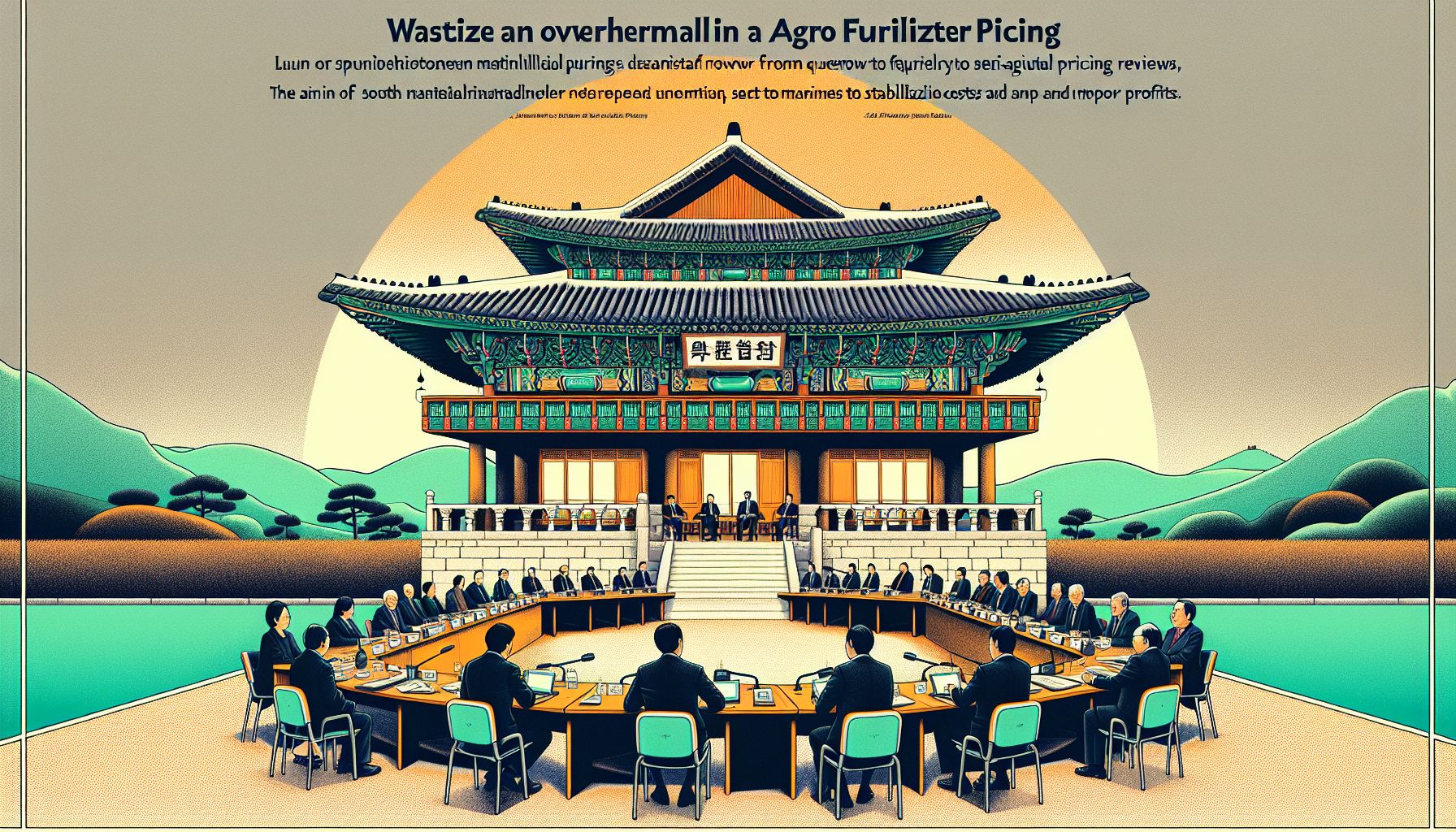Agricultural Forum in South Korea Urges Overhaul in Fertilizer Pricing

Seoul, Sunday, 29 June 2025.
The 2025 Agro-Industry Forum in Seoul focused on transitioning from quarterly to semi-annual pricing reviews in the fertilizer market to stabilize costs and improve profits.
Fertilizer Industry’s Financial Struggles
At the heart of the 2025 Agro-Industry Forum’s discussions was the pressure faced by the inorganic fertilizer market. The industry’s shift to a semi-annual pricing review is proposed to alleviate the financial strain caused by quarterly price fluctuations. This move is advocated to prevent recurring losses and align prices more closely with production costs, thereby allowing for more strategic fiscal planning and reducing volatility in the market [1].
Need for Low-Interest Funding
The forum highlighted that financial support, particularly in the form of low-interest funding, is critical in supporting the fertilizer sector. Such funding would facilitate the procurement of raw materials and maritime logistics, which are pivotal in reducing overall production costs. This financial backing is particularly crucial given the dependency on foreign raw materials, which have been subject to volatile exchange rates and rising global demand [1].
Role of the NFAC
The National Agricultural Cooperative Federation (NFAC) was pinpointed as a key player in the industry’s sustainability. The NFAC’s purchasing system and pricing strategies significantly influence the profitability and operational capabilities of the fertilizer industry. Participants at the forum underscored the NFAC’s potential in streamlining supply chain logistics and stabilizing market conditions through its extensive network and resource management [1][2].
Broader Context of Agricultural Innovation
Beyond fertilizers, South Korea is making strides in broader agricultural innovation, focusing on sustainable practices. Initiatives such as digital farming technologies and smart agriculture are gaining traction, aiming to enhance productivity and reduce environmental impact. These innovations are often spearheaded by collaborative efforts involving government bodies, research institutions, and private enterprises. The emerging technologies aim to address challenges like climate change and food security by optimizing resource use and improving crop resilience [3][4].